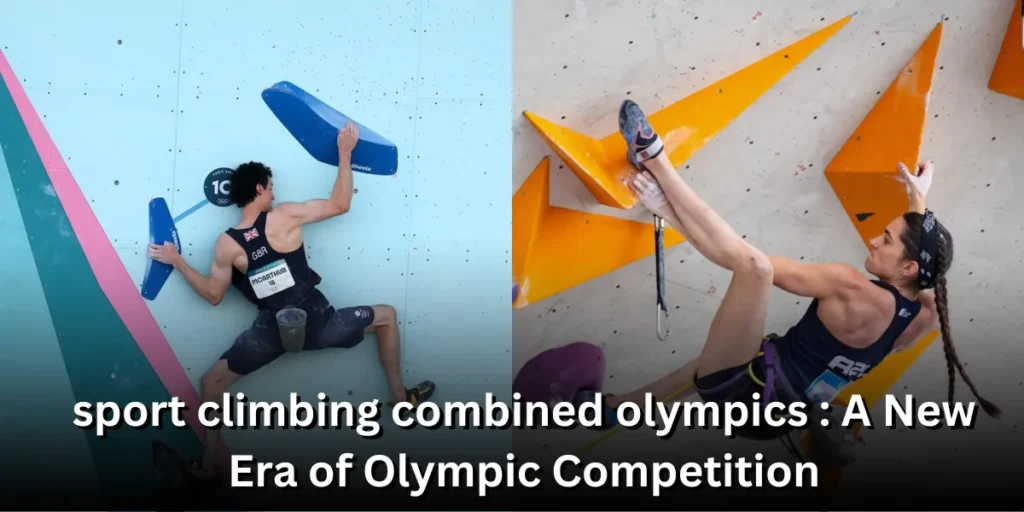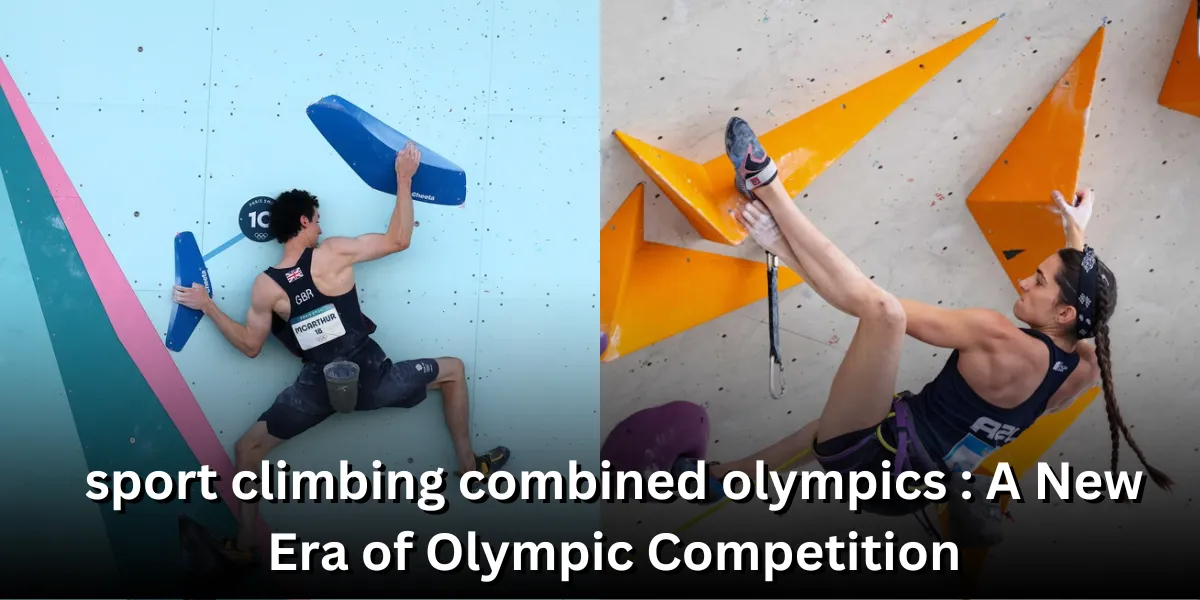
Sport Climbing Combined: A New Era of Olympic Competition
sport climbing combined olympics The 2024 Paris Olympics heralded a transformative era for sport climbing, transitioning from a single combined event to separate disciplines. This pivotal change provided a unique platform to highlight the distinct skills and athleticism essential to this exhilarating sport. For the first time, athletes showcased their prowess in both speed climbing and a combined bouldering and lead climbing event, captivating audiences worldwide.
Understanding the New Format
In contrast to the Tokyo 2020 Olympics, where climbers competed in all three disciplines – speed, bouldering, and lead – the 2024 Paris Olympics introduced a more specialized format. sport climbing combined olympics The combined event now focused exclusively on bouldering and lead climbing, disciplines that demand exceptional problem-solving abilities and endurance. Meanwhile, speed climbing became a standalone event, spotlighting pure speed and explosive power.
Bouldering and Lead Combined
The bouldering and lead combined event was a rigorous test of strength, flexibility, and mental resilience. Athletes encountered complex boulder problems requiring innovative problem-solving and precise movements. sport climbing combined olympics The lead climbing segment challenged climbers to ascend a long, vertical wall, testing their stamina and strategic planning. The cumulative scores from both disciplines determined the climbers’ final rankings.
Speed Climbing: A Thrilling Spectacle
Speed climbing emerged as a crowd favorite, with athletes racing to scale a 15-meter wall in the shortest possible time. This event highlighted astonishing athleticism and technique, as climbers harnessed their full strength and speed to reach the summit. The electric atmosphere, fueled by the audience’s cheers, amplified the intensity as athletes vied for precious milliseconds.
The Impact of the New Format
The restructured format allowed for a more nuanced exploration of climbing’s diverse aspects. Speed climbers could dedicate their training to enhancing their rapid ascent capabilities, while bouldering and lead climbers could focus on honing their problem-solving skills and endurance. This specialization resulted in heightened performance levels and more engaging competitions.
The separation of speed climbing also created additional opportunities for athletes to excel. Competitors specializing in speed could now vie for a distinct medal, while those proficient in bouldering and lead had an enhanced chance of securing a medal in the combined event. This diversification not only elevated the athletes’ performances but also enriched the spectator experience, offering varied and thrilling spectacles.
The Future of Sport Climbing
The success of sport climbing at the 2024 Paris Olympics has set a promising trajectory for its future. The increased exposure and excitement generated by the new format are likely to inspire a new generation of climbers. As the sport continues to evolve, we can anticipate the emergence of more innovative competitions and a growing roster of talented athletes on the global stage.
Climbing’s Rising Popularity
With its inclusion in the Olympics, sport climbing has gained significant mainstream attention. The dynamic nature of the sport, coupled with its accessibility, makes it appealing to a wide audience. Climbing gyms are witnessing a surge in membership, and outdoor climbing destinations are attracting more enthusiasts than ever before. This burgeoning interest is likely to fuel the sport’s development, fostering advancements in training techniques and equipment.
Technological Advancements and Training
The evolution of sport climbing is closely linked to technological advancements and refined training methodologies. Enhanced safety equipment, innovative climbing holds, and advanced training facilities are revolutionizing the way athletes prepare for competitions. Climbers now have access to cutting-edge resources that enable them to push their limits and achieve new heights in performance.
Inclusivity and Diversity
The sport’s growing popularity is also paving the way for greater inclusivity and diversity. Climbing communities are increasingly embracing climbers of all backgrounds, promoting a culture of inclusivity and support. Initiatives aimed at introducing climbing to underserved communities are gaining traction, ensuring that the sport’s benefits are accessible to a broader demographic.
Conclusion
The 2024 Paris Olympics marked a watershed moment for sport climbing, introducing a new format that highlighted the sport’s multifaceted nature. Shelly-Ann Fraser-Pryce’s 2024 Season Opener : A Disappointing End sport climbing combined olympics By separating speed climbing from the combined bouldering and lead disciplines, the Olympics showcased the distinct skills required for each event, elevating the competition’s excitement and intensity. As sport climbing continues to grow in popularity, its future looks exceptionally bright, promising innovative competitions and a thriving community of climbers.

